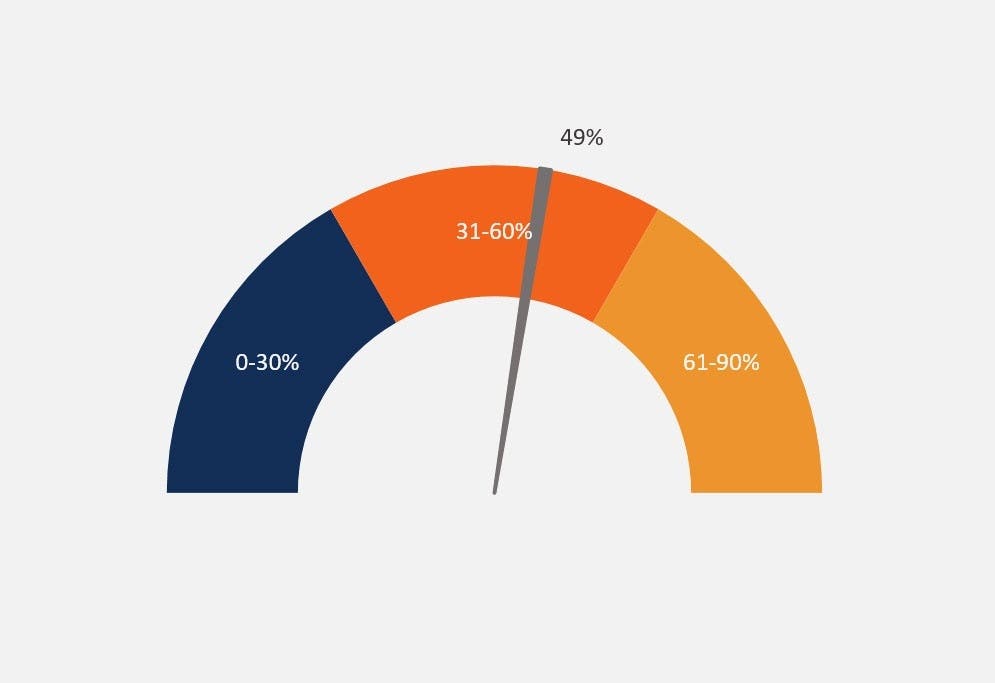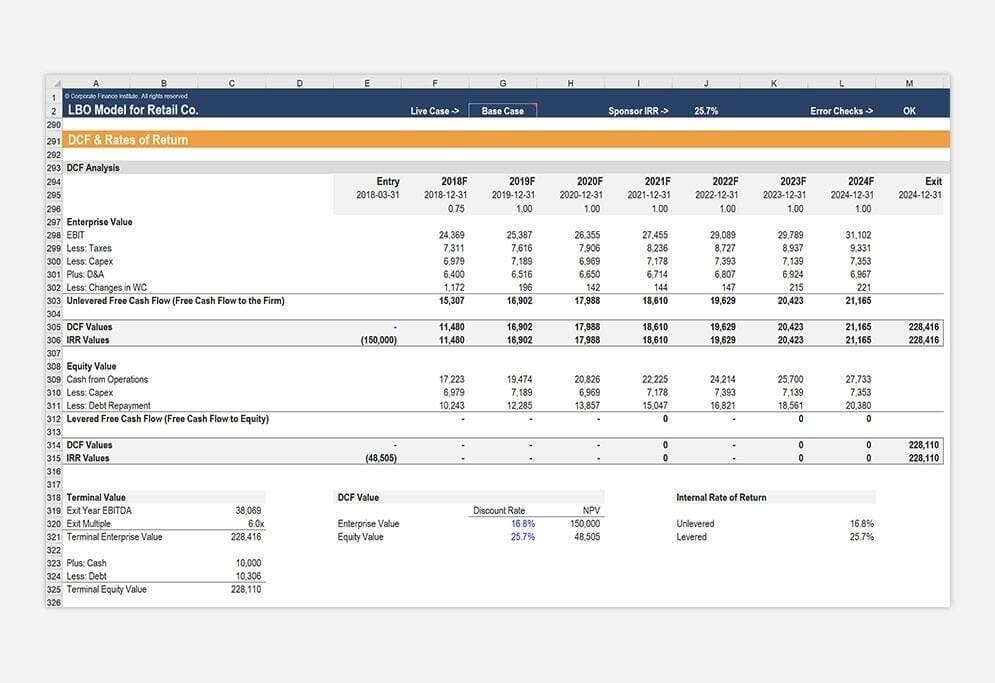
- What is Fintech?
- How Fintech Differs from Traditional Financial Technology
- Focus on Financial Services
- User Experience Priority
- Agile and Innovative Approach
- Cost-effectiveness and Scalability
- Characteristics of Fintechs
- Agility and Innovation
- Cutting-edge Technology Adoption
- Data-driven Decision-Making
- Customer-centric Approach
- Culture of Continuous Improvement
- Examples of Fintech Products and Services
- How Fintech Benefits Businesses
- The Future of Fintech and Corporate Finance
- Blockchain Integration
- AI and Machine Learning Advancements
- Open Banking and API Ecosystems
- Rise of Decentralized Finance (DeFi)
- Regulatory Technology (RegTech)
- Conclusion

From mobile banking apps to cryptocurrency exchanges, financial technology (fintech) innovations are reshaping the financial landscape for consumers and businesses. Below, we’ll explore the key aspects of the fintech industry, its impact on traditional finance, and its potential for future growth.
What is Fintech?
Fintech refers to the innovative technologies used to improve and automate financial services. The term encompasses various applications, from mobile banking and blockchain to artificial intelligence in financial decision-making. The primary goal of fintech is to enhance the efficiency, accessibility, and user experience of financial services for both consumers and businesses.
At its core, the fintech industry combines financial expertise with cutting-edge technology to create new solutions and disrupt traditional financial models. This fusion of finance and technology has led to the development of numerous products and services, like Venmo, Robinhood, and Betterment, which are changing how we manage our money, make payments, invest, and access credit.
How Fintech Differs from Traditional Financial Technology
While traditional financial technology has broad applications across various industries, fintech focuses specifically on financial services. This specialization allows fintech companies to address unique challenges and opportunities within the financial sector. The main differences between fintech and traditional technology include:
Focus on Financial Services
Fintech solutions are tailored to address specific needs within the financial industry, such as payment processing, lending, investing, and insurance. Traditional financial technology, on the other hand, relies on general-purpose enterprise software geared toward banking needs, which aren’t typically optimized for specific financial tasks.
User Experience Priority
Traditional banking and investment technology is mostly designed for back-end functionality and regulatory compliance, often resulting in less user-friendly interfaces and more complex processes for customers. Fintech is known for prioritizing user experience and accessibility, making financial services more convenient and user-friendly. This focus on user-centric design has led to intuitive interfaces and streamlined processes that make managing finances easier for consumers.
Agile and Innovative Approach
Fintech companies typically operate with a more agile and innovative approach, allowing for faster development and deployment of new financial products and services. This flexibility enables them to quickly adapt to changing market conditions and consumer needs. Traditional financial technology generally follows a more conservative approach with longer development cycles and extensive testing periods, often leading to slower innovation and product releases.
Cost-effectiveness and Scalability
Traditional financial technology tends to rely on legacy systems and on-premises infrastructure, which can be more expensive to maintain and scale and may require significant investments for upgrades or expansions. Fintech solutions are specifically designed to be more cost-effective and scalable than traditional financial technologies. By leveraging cloud computing, automation, and other advanced technologies, fintech companies can offer services at lower costs and easily scale their operations to meet growing demand.
Characteristics of Fintechs
Fintech companies share several common characteristics that set them apart from traditional financial institutions:
Agility and Innovation
Fintechs are typically agile and innovative, quickly adapting to market changes and consumer needs. This flexibility allows them to stay ahead of the curve and continuously improve their offerings.
Cutting-edge Technology Adoption
Many fintech companies leverage cutting-edge technologies like artificial intelligence, machine learning, and blockchain to offer more efficient and cost-effective solutions. These technologies enable fintechs to process vast amounts of data, automate complex tasks, and provide personalized services at scale.
Data-driven Decision-Making
Fintechs often prioritize data-driven decision-making and personalization in their product offerings. By analyzing user data and market trends, fintechs can tailor their services to meet specific customer needs and preferences.
Customer-centric Approach
Fintech companies frequently operate with a customer-centric approach, focusing on solving specific pain points in the financial services industry. This emphasis on addressing real-world problems has led to the development of innovative solutions that improve the overall customer experience.
Culture of Continuous Improvement
Fintechs typically have a culture of continuous improvement and iteration, regularly updating their products based on user feedback and market trends. This commitment to ongoing refinement ensures that their offerings remain relevant and competitive in a rapidly evolving industry.
Examples of Fintech Products and Services
The fintech industry has produced a multitude of innovative products and services that are transforming various aspects of finance — many of which people use regularly without realizing it.
Here are some notable examples of fintech products and services used by the general public, banking, and investment professionals:
- Digital payment platforms: Services like PayPal and Venmo have revolutionized peer-to-peer transactions and online purchases, making it easier than ever to send and receive money electronically.
- Robo-advisors: These automated investment management platforms use algorithms to provide low-cost, personalized investment advice and portfolio management to a broader range of consumers.
- Peer-to-peer lending: Online platforms that connect borrowers directly with lenders, bypassing traditional financial institutions and potentially offering more favorable terms for both parties.
- Cryptocurrency exchanges and blockchain-based services: These platforms offer new ways to store, transfer, and manage digital assets, leveraging blockchain technology for increased security and transparency.
- Insurtech: Companies in this sector use data analytics and AI to provide more personalized and efficient insurance products and services, streamlining everything from policy selection to claims processing.

How Fintech Benefits Businesses
The impact of fintech extends beyond consumer applications, offering significant advantages to businesses of all sizes, including:
- Streamlined financial processes: Fintech solutions can automate and optimize various financial tasks, reducing operational costs and improving efficiency for businesses.
- Enhanced risk assessment: Advanced analytics and AI-powered tools enable better risk assessment and decision-making in areas such as lending and investment, helping businesses make more informed financial choices.
- Improved scalability and integration: Cloud-based fintech platforms allow for easier scalability and integration of financial services into existing business operations, enabling companies to grow and adapt more efficiently.
- Real-time financial insights: Many fintech tools provide real-time financial data and analytics, enabling more informed and timely business decisions.
- Better cash flow management: Fintech solutions often improve cash flow management and forecasting, helping businesses better manage their financial resources to plan for the future.
The Future of Fintech and Corporate Finance
As technology continues to evolve, the fintech industry is set for further growth and greater innovation than what we’ve already seen thus far. These are some of the key trends and developments that are likely to shape the future of fintech and corporate finance:
Blockchain Integration
The integration of blockchain technology is expected to enhance transparency and security in financial transactions and record-keeping, potentially revolutionizing areas such as supply-chain finance and cross-border payments.
AI and Machine Learning Advancements
Continued progress in artificial intelligence and machine learning will likely lead to more personalized and sophisticated financial services and products. This includes everything from hyper-personalized investment advice to advanced fraud detection systems.
Open Banking and API Ecosystems
Open banking initiatives and application programming interfaces (APIs) are expected to foster greater collaboration between traditional financial institutions and fintech companies, creating new opportunities for innovation and improved customer experiences.
Rise of Decentralized Finance (DeFi)
The growth of decentralized finance platforms may reshape traditional financial structures and create new opportunities for financial inclusion, particularly in underserved markets. This is because DeFi offers valuable financial instruments without the need for intermediaries, like brokerages, banks, or exchanges, as these instruments involve smart contracts on blockchains, such as Ethereum.
Regulatory Technology (RegTech)
As the fintech landscape evolves further, RegTech will play an increasingly important role in ensuring compliance and managing risk, as its primary goal is to help both fintech companies and traditional financial institutions navigate complex regulatory environments.
Conclusion
The fintech industry has rapidly transformed the financial landscape and will continue to play an increasingly crucial role in shaping the future of finance. From blockchain-based solutions to AI-powered financial advisors, the possibilities for innovation in this space are virtually limitless. To stay competitive and leverage the benefits of fintech, professionals must continually update their knowledge and skills to maintain a competitive advantage.
The Corporate Finance Institute (CFI) offers a broad selection of fintech-related courses and certifications that can help you grow within the fintech industry. Explore CFI’s course catalog today to take the next step in your finance career.

Create a free account to unlock this Template
Access and download collection of free Templates to help power your productivity and performance.
Already have an account? Log in
Supercharge your skills with Premium Templates
Take your learning and productivity to the next level with our Premium Templates.
Upgrading to a paid membership gives you access to our extensive collection of plug-and-play Templates designed to power your performance—as well as CFI's full course catalog and accredited Certification Programs.
Already have a Self-Study or Full-Immersion membership? Log in
Access Exclusive Templates
Gain unlimited access to more than 250 productivity Templates, CFI's full course catalog and accredited Certification Programs, hundreds of resources, expert reviews and support, the chance to work with real-world finance and research tools, and more.
Already have a Full-Immersion membership? Log in





